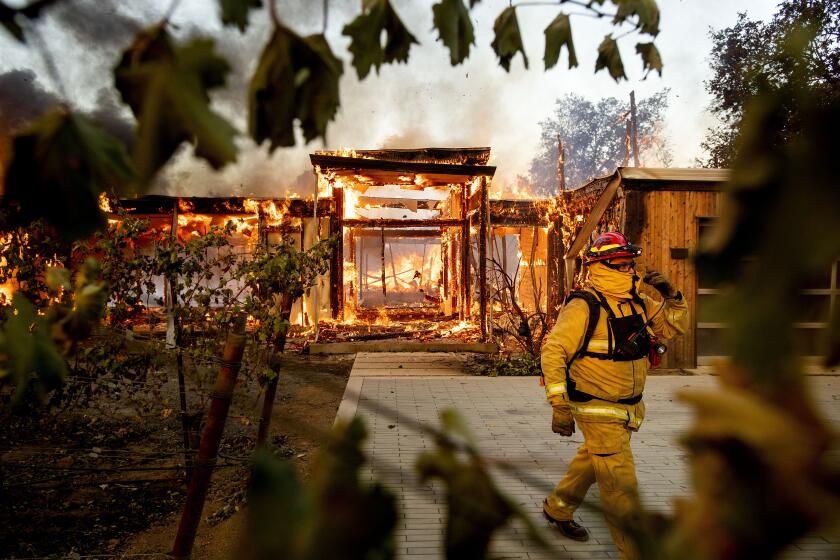Editorial: Earth is breaking heat records. Now can world leaders get serious about climate change?

- Share via
Brace yourself. The last three days have probably been the Earth’s hottest on record. Last month was the hottest June ever recorded. Punishing, deadly heat has hit large swaths of the planet, and oceans are experiencing heat waves with surface temperatures hitting new highs.
The long-predicted hotter future fueled by climate change is happening now.
The global average daily temperature hit 62.6 degrees on Monday, which was the highest since modern record-keeping began more than four decades ago, according to the University of Maine’s Climate Reanalyzer project, which uses satellite data and computer simulations to measure the world’s weather conditions.
Although 62 degrees may not sound startling, it is a global average that includes parts of the world that are in the middle of winter. The record was quickly broken Tuesday and Wednesday when the global average temperature hit 62.9 degrees. The record-breaking heat was backed up by other models as well. And climate scientists now think 2023 could be the warmest year on record.
State Farm said it will stop writing new home insurance policies because of climate risks and rising costs. California lawmakers need to be more aggressive in building safer communities.
Part of the reason for the higher temperatures is the return of El Niño, a climate pattern associated with hotter, more volatile weather. Human-caused climate change can amplify normal climate patterns and turn them into extreme weather events. There have always been heat waves and floods and wildfires — but climate change is fueling unprecedented heat waves that stretch over days and weeks, frequent flooding and megafires.
It’s frightening to see how fast the planet is warming and what that portends for countries across the globe that are feeling the effects of extreme weather, including intense heat waves, wildfires and drought. In China this week, 15 people have died and some 20,000 have been displaced by monsoonal flooding that has been especially severe. Last month, the eastern U.S. was cloaked in smoke from wildfires in Canada. And powerful heat waves in recent weeks claimed lives in Texas, Mexico and the Southwest, and across the globe in India.
The time for incremental steps has passed. World leaders can’t ignore or hope to avoid the pain of global warming now that it’s here. They have an obligation to act. More than a century of burning coal, oil and gas has caught up to us. To slow rising global temperatures and prevent greater harm that would come with hotter days, sea level rise and extreme weather, the major economies of the world have to immediately switch to renewable energy and slash planet-warming pollution in half by 2030.
New data on global temperatures and U.S. emissions show that despite some recent progress on climate policy, we’re still on a reckless path in the wrong direction. Leaders need to do more, fast.
Each record broken and new extreme is a warning that the planet is in distress. We are not doing enough to slow climate change and avoid greater suffering. But the human occupants of Earth are not powerless. The course forward is clear, though not easy or cheap. It requires dismantling the machinery of fossil fuels and replacing it with clean, renewable energy, electric vehicles and zero-emission technology.
This week’s record-breaking temperatures are another alarm warning that the window of opportunity to avoid climate devastation is closing. Will we wake up, or just hit snooze until the next extreme weather event?
More to Read
A cure for the common opinion
Get thought-provoking perspectives with our weekly newsletter.
You may occasionally receive promotional content from the Los Angeles Times.












